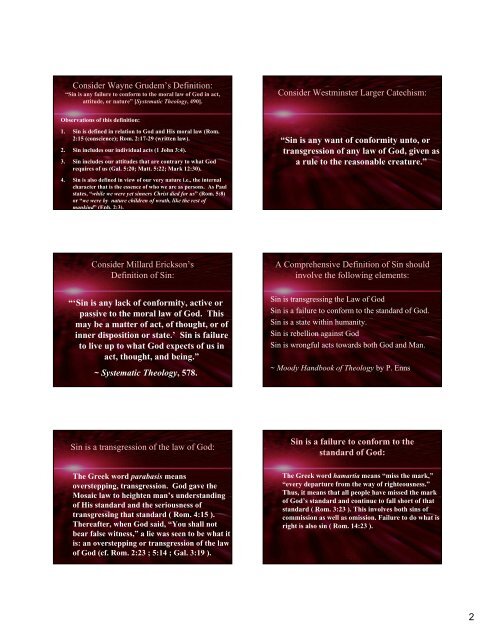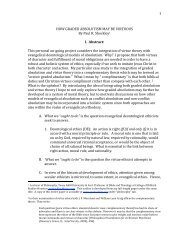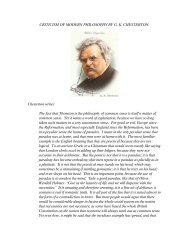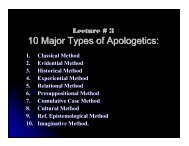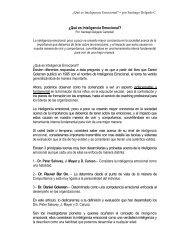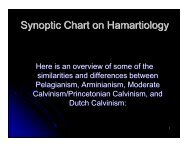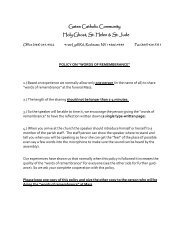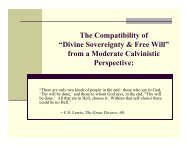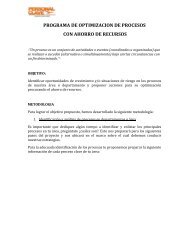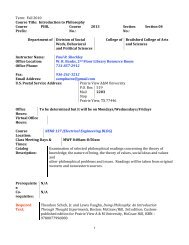Doctrine of Hamartiology: Consider the following passage: Consider ...
Doctrine of Hamartiology: Consider the following passage: Consider ...
Doctrine of Hamartiology: Consider the following passage: Consider ...
Create successful ePaper yourself
Turn your PDF publications into a flip-book with our unique Google optimized e-Paper software.
<strong>Consider</strong> Wayne Grudem’s Definition:<br />
“Sin is any failure to conform to <strong>the</strong> moral law <strong>of</strong> God in act,<br />
attitude, or nature” [Systematic Theology, 490].<br />
<strong>Consider</strong> Westminster Larger Catechism:<br />
Observations <strong>of</strong> this definition:<br />
1. Sin is defined in relation to God and His moral law (Rom.<br />
2:15 (conscience); Rom. 2:17-29 (written law).<br />
2. Sin includes our individual acts (1 John 3:4).<br />
3. Sin includes our attitudes that are contrary to what God<br />
requires <strong>of</strong> us (Gal. 5:20; Matt. 5:22; Mark 12:30).<br />
4. Sin is also defined in view <strong>of</strong> our very nature i.e., <strong>the</strong> internal<br />
character that is <strong>the</strong> essence <strong>of</strong> who we are as persons. As Paul<br />
states, “while we were yet sinners Christ died for us” (Rom. 5:8)<br />
or “we were by nature children <strong>of</strong> wrath, like <strong>the</strong> rest <strong>of</strong><br />
mankind” (Eph. 2:3).<br />
“Sin is any want <strong>of</strong> conformity unto, or<br />
transgression <strong>of</strong> any law <strong>of</strong> God, given as<br />
a rule to <strong>the</strong> reasonable creature.”<br />
<strong>Consider</strong> Millard Erickson’s<br />
Definition <strong>of</strong> Sin:<br />
“‘Sin is any lack <strong>of</strong> conformity, active or<br />
passive to <strong>the</strong> moral law <strong>of</strong> God. This<br />
may be a matter <strong>of</strong> act, <strong>of</strong> thought, or <strong>of</strong><br />
inner disposition or state.’ Sin is failure<br />
to live up to what God expects <strong>of</strong> us in<br />
act, thought, and being.”<br />
~ Systematic Theology, 578.<br />
A Comprehensive Definition <strong>of</strong> Sin should<br />
involve <strong>the</strong> <strong>following</strong> elements:<br />
Sin is transgressing <strong>the</strong> Law <strong>of</strong> God<br />
Sin is a failure to conform to <strong>the</strong> standard <strong>of</strong> God.<br />
Sin is a state within humanity.<br />
Sin is rebellion against God<br />
Sin is wrongful acts towards both God and Man.<br />
~ Moody Handbook <strong>of</strong> Theology by P. Enns<br />
Sin is a transgression <strong>of</strong> <strong>the</strong> law <strong>of</strong> God:<br />
Sin is a failure to conform to <strong>the</strong><br />
standard <strong>of</strong> God:<br />
The Greek word parabasis means<br />
overstepping, transgression. God gave <strong>the</strong><br />
Mosaic law to heighten man’s understanding<br />
<strong>of</strong> His standard and <strong>the</strong> seriousness <strong>of</strong><br />
transgressing that standard ( Rom. 4:15 ).<br />
Thereafter, when God said, “You shall not<br />
bear false witness,” a lie was seen to be what it<br />
is: an overstepping or transgression <strong>of</strong> <strong>the</strong> law<br />
<strong>of</strong> God (cf. Rom. 2:23 ; 5:14 ; Gal. 3:19 ).<br />
The Greek word hamartia means “miss <strong>the</strong> mark,”<br />
“every departure from <strong>the</strong> way <strong>of</strong> righteousness.”<br />
Thus, it means that all people have missed <strong>the</strong> mark<br />
<strong>of</strong> God’s standard and continue to fall short <strong>of</strong> that<br />
standard ( Rom. 3:23 ). This involves both sins <strong>of</strong><br />
commission as well as omission. Failure to do what is<br />
right is also sin ( Rom. 14:23 ).<br />
2


